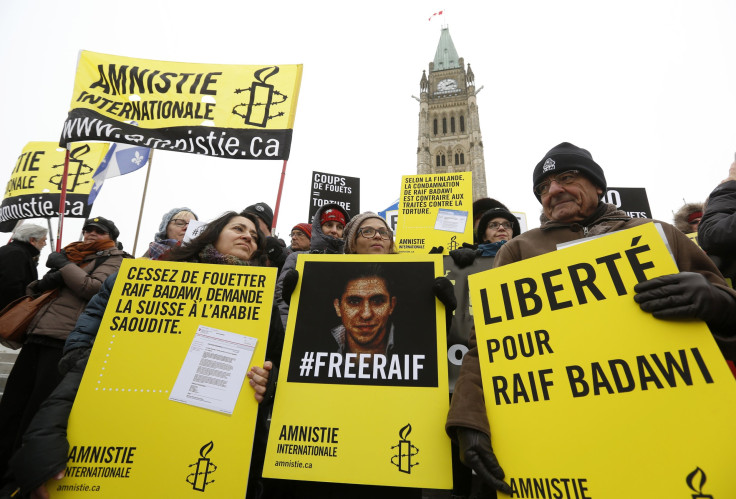Saudi Blogger Raif Badawi Wins Sakharov Human Rights Prize

The European Parliament awarded this year’s Sakharov Prize for Freedom of Thought to a Saudi Arabian blogger who has been imprisoned and lashed for his writings. Raif Badawi, 31, was announced the winner Thursday with the European Parliament’s president calling for his release.
“In the case of Mr. Badawi, fundamental human rights are not only not being respected, they are being trodden underfoot,” said Parliament President Martin Schulz.
Badawi was arrested in 2012 for his criticism of the Saudi religious police and his writings on the Free Saudi Liberals website, the BBC reported. He was sentenced in 2014 to 10 years in jail and 1,000 lashes for his writings on Islam, which were deemed to be insulting by authorities. The first 50 lashes in a set of 20 were carried out in public in January, but subsequent ones have been delayed several times.
"I call on the King of Saudi Arabia to immediately pardon @raif_badawi," @EP_President #FreeRaif #SakharovPrize https://t.co/5tdDL5dnka
— European Parliament (@Europarl_EN) October 29, 2015Schulz described Badawi as “an extremely good man, an exemplary man who has had imposed on him one of the most gruesome penalties.” He called on the Saudi king to release Badawi.
Badawi’s case has drawn international condemnation from human rights groups and governments alike. Badawi’s wife, Ensaf Haidar, has said the prison sentence would cause her husband’s death with his health decreasing due to the lashes. Badawi’s wife and children were granted asylum in Canada in 2013.
“[Europe] cannot stay silent anymore when individuals face torture or death merely for expressing their ideas in Saudi Arabia,” said Tamas Meszerics, a European Parliament member from Hungary who put Badawi’s name forward for the prize.
The two other candidates for the prize this year were Russian opposition figure Boris Nemtsov, who was gunned down in front of the Kremlin in February, and a coalition of opposition groups in Venezuela, Mesa de la Unidad Democrática, which formed in 2008 in response to the government of President Hugo Chávez. The prize has been awarded since 1988 and comes with an award of more than $57,000. It was named after the Soviet dissident Andrei Sakharov.
© Copyright IBTimes 2024. All rights reserved.












